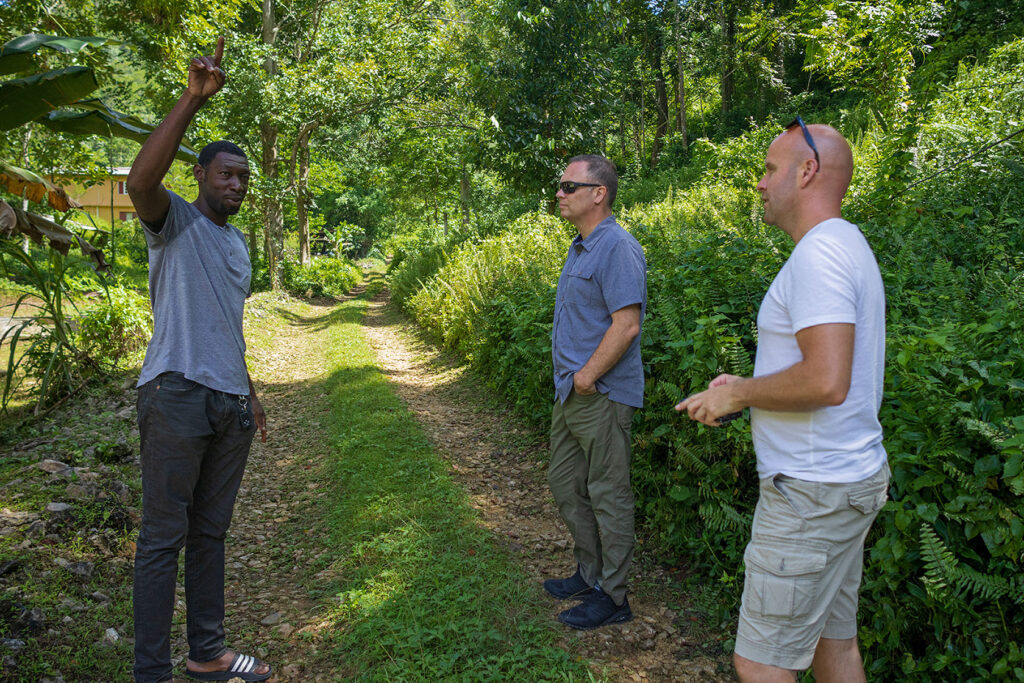You know the drill: I’d flip open my plastic, star-speckled suitcase and fill it with four framed photos, a few toys that had seen better days, and a jar of peanut butter.
Then, making sure I did enough huffing and puffing so my family knew my intentions, I’d make my way down the driveway, sniffling to myself the whole time about how unloved I was.
I’d usually make it to the end of the driveway before chickening out, camping out under a tree for a while eating my peanut butter until I sheepishly re-entered the house.
Backpacking is one of my favorite hobbies.
Surprisingly, my packing abilities have improved since my flourishes of childhood drama. What you pack, and especially what you don’t pack, is essential for the best backpacking experience.
Five-year-old Sarah thought framed photos and some crayon-covered toys were essential for life on the road. Twenty-five-year-old Sarah realizes that a lighter, wool socks, and a water bottle are much higher on the list of necessities.
While I have made improvements in my sense of priorities, I still have a long way to go.
I’m a sentimental sap, and if my ability to take only what I needed on the journey of life was a metaphorical backpack, I would have filled it up long ago with letters and knick knacks, leaving no room for the tools and necessary items that would help me survive.
I think we all have a hard time letting go of what we think we need. How do we respond when we’re asked to set those things down? Do we respond with anger? Indignation? Bitterness?
Does it make us question God’s goodness? Does he really understand what it’s like to shoulder our backpack? Sure, maybe he knows best with others, but with us? There were days when I wasn’t so sure.
I didn’t always feel like God was good. I didn’t always feel like he cared if I was happy or not.
I remember when I was preparing to serve in Brazil.
The Lord helped me pack, of course. At first, I was more than willing to take his suggestions.
At first, my boisterous family of 10 was pulled from the bottom of my pack. Leaving for Brazil meant no family birthdays, no baby showers, no getting to watch my nieces and nephews take their first steps or say their first words.
Then it was my close-knit community of women that all began to get married and have children around the same time. Leaving for Brazil meant that I would never get the opportunity to share in that stage of life with them for a long time, perhaps ever.
I remember crying when my sister revealed that she was pregnant only a month before I left, and I realized I would have family who wouldn’t even know who I was.
It felt like God was taking too much away at once.
It’s not easy to admit I felt this way. I wish I could say that the complete abandon of all that I held dear came with unbridled joy. But I think it’s important to voice what I think many Christians experience, but allow shame to keep them quiet. There is no shame in crying out to God when your pain feels pointless and the sacrifice you’re being required to make feels unnecessary.
I spent some time in counseling and memorized a lot of Scripture during that time, including Psalm 84:11: “For the Lord is a sun and shield; the Lord bestows favor and honor; no good thing does he withhold from those whose walk is blameless.”
It’s a spiritual discipline to believe that God is good. It’s a discipline to believe that he doesn’t withhold good things from us, and it’s a discipline to believe that he doesn’t seek to make us miserable creatures constantly trudging through self-denial and suffering.
So then, how can we exercise spiritual disciplines to help us respond differently?
First, talk to God honestly about your feelings. I think as Christians we often try to find meaning in our pain before we have even dealt with our pain. Allow yourself to mourn.
Second, journal how you feel compared with what you know to be true. This is something I learned how to do in counseling and it has helped me tremendously. I would journal something like: “It seems like God is taking away too many good things.” Then I would journal what I knew to be true about God, such as: “He doesn’t withhold any good thing.”
The point is to fight untruths with the truths found in Scripture, even when they don’t feel true. If we allow ourselves to simmer in untruths, we will become bitter toward an idea of an emotionally detached God carelessly zapping people for amusement.
Earlier this summer I read “Gentle and Lowly: The Heart of Christ for Sinners and Sufferers” by Dane C. Ortlund. Ortlund writes:
The burden of Hebrews 4:15, and of Thomas Goodwin’s book on it, is the heart of Christ. Yes, verse 16 speaks of “the throne of grace.” But verse 15 is opening up to us the heart of grace. Not only can he alone pull us out of the hole of sin; he alone desires to climb in and bear our burdens. Jesus is able to sympathize. He “co-suffers” with us. As Goodwin’s contemporary John Owen put it, Christ “is inclined from his own heart and affections to give . . . us help and relief . . . and he is inwardly moved during our sufferings and trials with a sense and fellow-feeling of them.” If you are in Christ, you have a friend who, in your sorrow, will never lob down a pep talk from heaven. He cannot bear to hold himself at a distance. Nothing can hold him back. His heart is too bound up with yours (49-50).
Ortlund shows and proves that God suffers when we suffer. If our pain causes him pain, why would he inflict senseless pain without a purpose? Why would he cause us to suffer unless he was doing something good through it?
This is the hope I cling to.
I didn’t understand why God asked me to leave those things behind at that time.
But I chose to trust the character of God. And I chose to trust that his love for me was greater than I could ever imagine.
And for everything I felt that I sacrificed to come to Brazil, the Lord has only lavished me 100 fold with new family, new friends, new community, and a nearness to him I never knew before.
His love for you is greater than you could ever imagine.




